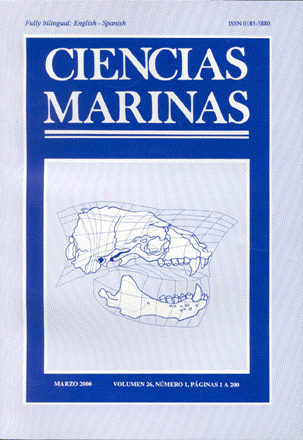Alkalinity determination by potentiometry: intercalibration using three different methods
Main Article Content
Abstract
Seawater was sampled from different depths in the North Atlantic Ocean (Canary Islands region) and distributed among three different labs for the determination of titration alkalinity. Analysis was performed by potentiometric methods, involving titration in a closed cell, titration in an open cell and a two end-point acid addition method. The precision, which is the sample reproducibility taken from the mean standard deviation for replicate measurements, was between 0.45 and 0.90 µmol · kg–1 for the individual labs. Accuracy, here taken as the deviation for the values of a lab from the mean of all three, was mostly below 1 µmol · kg–1 and never exceeded 0.1% of the sample value. Mean standard deviation for all labs and all samples was 0.87 µmol · kg–1, once the individual methods were calibrated using certified reference material (CRM). Without CRM calibration, the mean standard deviation would increase to 2.8 µmol · kg–1. The conclusion is that current high precision methods for alkalinity measurements calibrated with CRMs are able to reach similar accuracy as the measurement of total dissolved inorganic carbon by coulometry and therefore allow for the precise determination of the oceanic carbon dioxide system by using the two measured parameters.
Downloads
Article Details
This is an open access article distributed under a Creative Commons Attribution 4.0 License, which allows you to share and adapt the work, as long as you give appropriate credit to the original author(s) and the source, provide a link to the Creative Commons license, and indicate if changes were made. Figures, tables and other elements in the article are included in the article’s CC BY 4.0 license, unless otherwise indicated. The journal title is protected by copyrights and not subject to this license. Full license deed can be viewed here.

